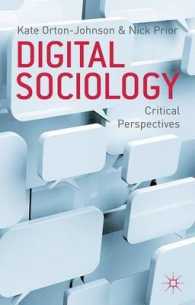- ホーム
- > 洋書
- > 英文書
- > Computer / General
Full Description
This book presents joint works of members of the software engineering and formal methods communities with representatives from industry, with the goal of establishing the foundations for a common understanding of the needs for more flexibility in model-driven engineering.







